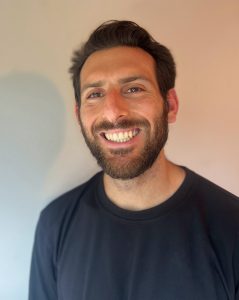
My name is Dr. Vincent Esposito, and I am a holistic doctor with extensive training in chiropractic, nutrition, breathwork, and herbal medicine.
My passion lies in the realm of mind-body-spirit medicine, gut health, breathwork, herbalism, detoxification, iridology, and harnessing the healing power of food.

Book an analysis with me to get focused on the results you want to create in your health, impact, and aspirations, and we'll lay out a a road map on how to get there! Fill out the form and I will call you! (Brooklyn Location)
I will take 60 minutes to narrow down this focus, figure out your goals, and create a customized healing plan for you. Afterward, you'll receive a customized protocol tailored to your specific goals.
Need more support and guidance beyond just a one-time consult? This is it. Monthly consults, text, and voice support from me three days a week to keep you on track and answer any questions and get personalized guidance tailored to your unique needs. You'll also gain free access to all courses, giving you the tools and knowledge you need to support your wellness journey. Cancel anytime.

